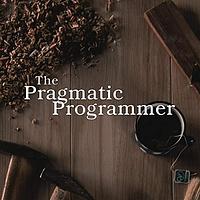You need to sign in or sign up before continuing.
Take a photo of a barcode or cover
226 reviews for:
The Pragmatic Programmer: 20th Anniversary Edition, 2nd Edition
David Thomas, Andrew Hunt
226 reviews for:
The Pragmatic Programmer: 20th Anniversary Edition, 2nd Edition
David Thomas, Andrew Hunt
informative
medium-paced
challenging
informative
reflective
relaxing
medium-paced
Work related read
It was interesting, the best thing about it is that it has information for both beginners and more senior developers. The first half is definitely the most interesting where they encompass their whole philosophy, after that it drags on a lot with extra specific cases. Never useless, just not as interesting.
It was interesting, the best thing about it is that it has information for both beginners and more senior developers. The first half is definitely the most interesting where they encompass their whole philosophy, after that it drags on a lot with extra specific cases. Never useless, just not as interesting.
Great questions to ask and themes to follow at any level of software programming.
This is a great book for beginning (or not) programmers of any languages. Lots of good ideas for how to better write your code.
Anyone that have been programming for a while will find everything written is common sense.
informative
slow-paced
I have too much respect for my time and dignity to finish this book. While it’s from my era (mid to late 90s computing is my jam!), much of the advice should stay there. The book often takes a condescending tone, showing the readers just exactly how smart the writers are. How much detail do we need about helicopter controls?
Many of the metaphors have not aged particularly well - broken windows theory is largely discredited in many ways, frogs DO jump out of boiling pots, and if your software isn’t killing people or blowing things up then maybe a “tracer bullet” isn’t the right metaphor. (We call them “Hello World” stories in my shop.)
Other problems include:
* advice that is non-obvious to the point that I doubt its validity
* examples of problems with no generalized advice about solutions
* approaches that don’t work well in a culture of code reviews, devops / full stack engineers
* answers that boil down to “it depends, figure it out”
* tremendous detail about technologies that are no longer widely used
I might have given this a different score back in 2000 when the book was new, but in 2021, you have better options.
Many of the metaphors have not aged particularly well - broken windows theory is largely discredited in many ways, frogs DO jump out of boiling pots, and if your software isn’t killing people or blowing things up then maybe a “tracer bullet” isn’t the right metaphor. (We call them “Hello World” stories in my shop.)
Other problems include:
* advice that is non-obvious to the point that I doubt its validity
* examples of problems with no generalized advice about solutions
* approaches that don’t work well in a culture of code reviews, devops / full stack engineers
* answers that boil down to “it depends, figure it out”
* tremendous detail about technologies that are no longer widely used
I might have given this a different score back in 2000 when the book was new, but in 2021, you have better options.
Really good points, some of it is common sense. Will be applying this to my work.
Amazing book. Must read for programmers and project leads.

